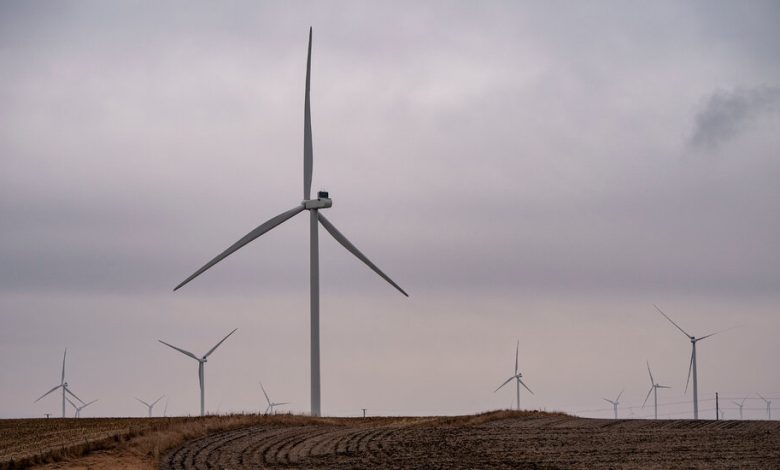Biden’s Climate Law Has Created a Growing Market for Green Tax Credits

The climate law that President Biden signed in 2022 has created a large and growing market for companies to buy and sell clean-energy tax credits, new Treasury Department data suggests, creating opportunities for start-ups to raise money for projects like wind farms and solar panel installations.
The market also provides new opportunities for large companies and financial firms to make money.
Treasury officials will report on Tuesday that more than 500 companies have registered a total of 45,500 new clean-energy projects with the Internal Revenue Service in order to benefit from tax breaks in the 2022 law. That law, the Inflation Reduction Act, is the federal government’s most expensive effort ever to reduce fossil fuel emissions and fight global warming.
The projects registered with Treasury vary widely in size. They could be as small as a single wind turbine or as large as a new advanced battery factory. Treasury officials say that they are predominantly focused on wind and solar energy thus far, and that projects have been registered across all 50 states and the District of Columbia.
The numbers reflect both the wide scope of the climate law and the novel mechanisms it created for companies to cash in on its incentives.
The law seeks to encourage more production and faster deployment of emissions-reducing technologies, in part by offering tax credits to companies that manufacture those technologies or install them across the country. The credits are lucrative: Solar manufacturers, for example, say the incentives have reduced the cost of American production significantly and helped American-made panels compete with those made in China.
Typically, in order to cash in on tax incentives, American companies need to have high enough revenue and profits to generate significant federal tax liability. That has made it hard for small companies, start-ups and others struggling to turn a profit to benefit from the climate law. So the Inflation Reduction Act’s authors created what are effectively two workarounds to help the law boost those companies, both of which require registering projects with the I.R.S.
